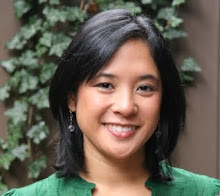The cold and flu season is upon us and the topic of flu vaccinations have been making headlines, particularly for the 2009 H1N1 influenza virus, commonly known as "swine flu." The swine flu virus has proven to be very contagious and has affected people all over the globe. Manufacturers have been pushing out swine flu vaccines as fast as they can, but the demand is still greater than the current supply. Because of this shortage the CDC is recommending that pregnant women, people who live with or care for children younger than 6 months of age, health care and emergency medical services personnel with direct patient contact, children 6 months through 4 years of age, and children, especially those younger than 5 years of age and those who have high risk medical conditions are at increased risk of influenza-related complications should receive the vaccine before other population groups.* Vaccine shortages have left many people frustrated and worreid that they won't be able to do what they need to do in order to protect themselves from illness. Fortunately, acupuncture and Chinese herbal medicine are natural, safe and viable options to help with the prevention and treatment of flu viruses, including the swine flu.
PreventionConventional medicine uses immunization as a preventative measure. A vaccine is basically a weakened or dead strain of a particular virus. When injected the presence of the virus stimulates the body's immune system to begin producing antibodies for that virus and they become resistant to any future infection of that particular virus. This is actually a very homeopathic approach and is one example of how the roots of modern medicine and ancient Easter and homeopathic medicine are intertwined. Immunization has proven to be quite effective and has helped in nearly eradicating several serious diseases such pertussis, polio, measles, mumps and rubella just to name a few. Generally people receive these vaccinese during childhood and are protected for the rest of their lives. However, influenza virus strains mutate so rapidly and so often that conventional medicine recommends annual vaccinations in order to keep up with the ever changing strains. Manufacturers are often unable to produce and distribute vaccines fast enough for the most current strain. So even if you do receive a flud shot, it is not guaranteed that you are going to be protected from the most current flu virus.
Chinese medicine, particularly herbal medicine, has played an integral part in the the prevention of colds and flus for thousands of years across Asia. The focus of Chinese medicine is not to "cure" diseases, but more to encourage the body's natural immune system and healing mechanisms so that the body can heal itself. Because of this, acupuncture and herbal medicine not only play a role in treatment, but also in the prevention of disease. Our bodies are designed to fight off illnesses and do just that every day whether we realize it or not. Every once in a while our natural defenses are weakened and we become susceptible to the surrounding pathogenic factors. Chinese medicine can help strengthen and maintain your natural defenses so that you are protected at all time. Unlike a strain-specific vaccination, Chinese medicine works to strengthen your immune system as a whole and therefore you would be protected from all strains of illness.
TreatmentIf you do happen to get sick, Chinese medicine also has a solution for the treatment of various stages and symptoms of illness. Research has shown that several classical Chinese herbs, such as Lonicera and Isatis, have anti-viral and anti-inflammatory properties and have shown to be effective in decreasing fever, cough, and inflammation in the lungs. Hospitals in China have been successfully treating infectious diseases for decades using a truly integrative approach towards healthcare by combining both modern and ancient medicine. Here is one article of a hospital in Beijing that is designated specifically to the treatment of swine flu.
ARTICLEI have a few go-to herbal products available in my clinic that I recommend to all of my patients to keep in their medicine cabinets for not only immune support, but also if they happen to get sick. Here are some other ways to help keep your immune system strong this winter:
Wash your handsHand washing is the single most effective way to prevent the spread of disease.
Eat a well-balanced, healthy dietChinese medicine believes that health begins in the gut. A healthy gut/digestive system means a healthy immune system and a healthy body and mind. A good rule of thumb for a well-balanced diet is to be sure that each meal includes as many colors of the rainbow as possible (natural colors of course... blue Gatorade doesn't count!)
ExerciseBlood flow encourages healing and it is important to keep your muscles and respiratory system active and strong. Go for a walk once a day, or at least every other day. It doesn't have to be strenuous.
Get plenty of restSleep is the only opportunity for our bodies to recharge. If your body is tired, then it won't have enough energy to fend off pathogens.
Stay homeIf you are sick, please stay home. Going to work or school while you are contagious not only spreads illnesses, but also makes it harder for your body to heal. It's likely you will be sick for longer than if you were to just stay home and rest for a day.
Recipe: A home remedy for cough and congestion
Thinly slice some daikon radish (a white, oblong-shaped Asian radish; you can use regular fresh radish if you can't find daikon) and place in a small bowl or dish. Cover with about 2 Tbs. of natural honey and let sit for 20-30 minutes. The juice from the radish will begin to leach out and mix with the honey. Drink the radish jus and honey together.
*CDC.gov. November 13, 2009. Centers for Disease Control and Prevention. November 27, 2009.


